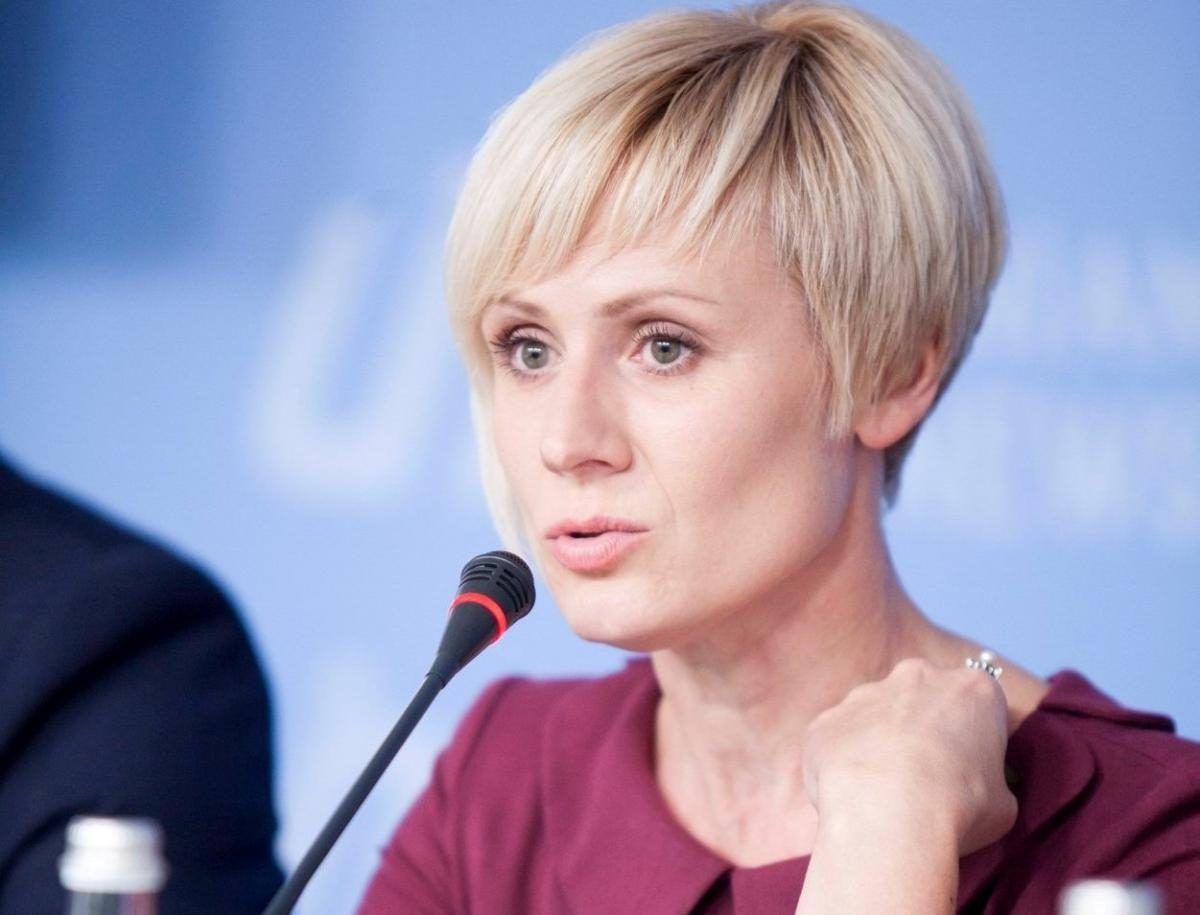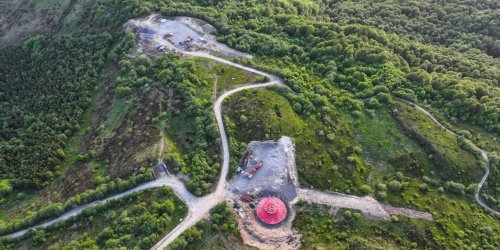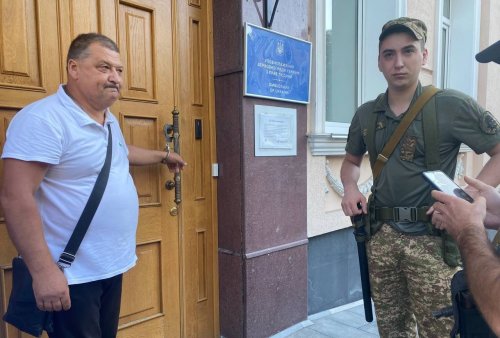The war in Ukraine has been going on for more than three months. During this time, it was critical not only to protect territories and save the lives of citizens, but also to restore the economy as soon as possible. As it turned out, this process is currently hampered by a number of bureaucratic procedures in the environmental sphere.
EcoPolitic spoke with Lyudmyla Tsyganok, President of the Professional Association of Environmentalists of Ukraine, about the critical situation with the issuance of the conclusions of the environmental impact assessment and how this procedure slows down the return to operation of critical enterprises. The ecologist also praised the work of the Ministry of Environmental Protection from a professional point of view and told how every Ukrainian can help minimize the consequences of the war for the environment.
- For understanding to our readers. Why is the environmental impact assessment (EIA) procedure so important for business and what does it involve?
The Law of Environmental Impact Assessment is part of European legislation, a progressive European tool for sustainable development. It had all the chances to become a positive white spot against the background of other environmental legislation, but, unfortunately, in fact, was turned into another way of fighting interests not for the environment in peacetime, and during the war sometimes became an instrument of criminal anti-Ukrainian action. The effectiveness of the procedure has long been a concern for each participant in the interaction.
On the one hand, environmental impact assessment is a procedure of civil society, a procedure of safe existence of all stakeholders, safe environmental planning, rational decisions and sustainable development. Public opinion should be taken into account during preparing a report on environmental impact assessments.
According to Directive 2011/92/ EU, environmental impact assessment (EIA) must identify, describe and assess the direct and indirect significant effects of a project on the safety of human life and health, the environment and its elements, natural areas and sites, historical monuments and other material objects, cultural heritage.
On the other hand, the EIA allows businesses to determine not only the environmental feasibility of the planned activities, but also allows to determine the best alternative to it in compliance with the requirements of current environmental legislation.
The Law of EIA has in fact introduced a new financial model of activity planning, which takes into account not only economic but also environmental factors.
Prior to the start of design work, the investor must conduct a detailed environmental impact analysis, evaluate all alternatives, take into account public opinion and obtain appropriate conclusions from the authorities. And only after that he can start designing production. New EIA rules have changed the approach to environmental risk assessment.
It should be noted that only those companies that plan to carry out activities that will pose environmental risks to the environment are obliged to obtain an EIA opinion. This procedure does not apply to economic entities that have passed the environmental examination. However, if the company wants to expand production, carry out reconstruction or change the purpose of agricultural land, it must also obtain an opinion.
In this case, the cumulative effect will be calculated during its preparation: creating new industrial facilities, the company will need to take into account the negative consequences of existing facilities.

УНІАН
- If you compare how the EIA works in Europe and Ukraine, what is similar and what is the difference?
Aiming to the standards of European society in 2018, Ukraine has tightened its regulation of economic activity, covering not only the planned activities provided for in Annex I to Directive 2011/92/ EU, but also the activities provided for in Annex II.
In addition, to the list of activities for which the EIA procedure is provided, have been added the activities that are not provided for in either Annex I or Annex II.
As a result, in terms of the number of cases in the EIA register, these “additional” activities exceed those provided by Directive 2011/92/ EU several times!
In Ukraine, the conclusion of the EIA is more than one permit document for one economic activity. This is a permit for 115 activities under Part 2 and Part 3 of Art. 3 of the Law of Ukraine "On Environmental Impact Assessment" (Law), in particular on their change, re-equipment, re-profiling, expansion, etc.
At the same time, along with stricter regulation, there are gaps through which our international partners will sooner or later force Ukraine to bring everything in line with their requirements.
- How does EIA do in martial law and does it work at all? What are the obstacles?
Proponents of the EIA procedure during the war in an unchanged format (I emphasize, this is not about repealing the rules, we are talking only about the wartime regime) are aimed at lobbying the bureaucracy and corruption in the field of environmental protection. The argument is European directives!
I would like to emphasize that Directive 2011/92/ EU does not provide for any action on EIA during martial law. There are decisions regarding reconstructions, repairs, etc. at enterprises that cannot wait for the EIA procedure at present.
Now, in critical conditions and violations of logistics chains, companies are forced to change raw materials, which affects the qualitative and quantitative volumes of waste generation, emissions of pollutants, and is formally the basis for EIA.
At the same time, the types of planned activities specified in the Law are budget-generating and are carried out by large business entities.
The procedure is delayed. Despite the deadlines specified in the Law, in fact the procedure lasts 4-6 months. In conditions of war, such expectations are unacceptable.
The cornerstone of the EIA procedure is publicity. During the war, public access to the Unified Register of EIA was closed for security reasons. In accordance with the requirements of the Law, all stages of the procedure are covered by informing the public both through the register and through the print media. Without access to the register, the element of publicity was not observed, which is the reason for revoking the conclusion of the EIA.
It means that all conclusions issued after the closure of the register and initiated cases may be revoked in the future for formal reasons. Investments in this format are almost impossible and experts know it!
The actual impact assessment is not possible. Because:
- access to registers, public cadastral map is blocked (about 60 registers of public data are used for preparation of the report);
- currently, it is forbidden to stay in forests (according to the Guidelines of the Ministry of Environment, the study area should cover a radius of 2 km from the planned activities, which almost always include forest plantations and forests), which makes biodiversity research impossible;
- any movement for the purpose of conducting field research (sampling of soil, water, air) outside the settlement should be carried out in consultation with the Military Administration (in most cases such approvals are not provided).
Under these conditions, the entity is not able to prepare the report.
In fact, deregulation will apply to entities that do not require permits, do not affect the main budget revenues and are not employers for thousands of citizens.
In turn, the subjects that really affect the economy will be stuck waiting for opportunities to pass the EIA.

kp.ua
- For the post-war reconstruction the EIA was abolished, but not for the period of martial law. Why is it so, in your opinion?
On the one hand, there is no question of the movement to the EU on the scales and the abolition of the EIA! However, it is absolutely necessary to improve the law and simplify the procedure for the period of wartime and for 3 months after its completion. Today, under the guise of a noble goal and European integration, many extremely unpatriotic and non-state things are hidden. It is extremely difficult for the average citizen to understand the nuances and pitfalls. And, sometimes defending the goal, they forget about whether the tool for achieving is effective today.
- Can it be argued that the EIA procedure, which slows down business recovery, is blamed for the fuel crisis?
One of the consequences of over-regulation is the slowdown from the fuel crisis. In April, the aggressor concentrated missile strikes on our fuel infrastructure: he destroyed gas stations, several times attacked the country's main oil refineries – the Kremenchug refinery "Ukrtatnafta", the refinery "Naftohimik-Prykarpattya" and a refinery in Lysychansk.
At the same time, existing industrial facilities cannot quickly restore industrial capacity, as each new drilling, repairing of wells and facilities in the Ukrainian reality requires an environmental impact assessment.
As a result – the impossibility of rapid recovery of raw materials, shortage of gasoline and diesel fuel, the introduction of limits on the purchase of fuel at gas stations, partial return to the coupon system.
- PAEU publicly addressed the Office of the President, the Cabinet of Ministers, and the Ministries regarding the pitfalls of the EIA during the war. Was there any reaction to your appeal?
The state regulatory service of Ukraine supported the proposed amendments to the legislation of the PAEU. At a meeting in April, the Ministry of the Environment publicly promised to show a draft of changes to the EIA. However, a month has passed, we have not seen the text…
PAEU's proposals to the Government concern the period of martial law and within 3 months after its termination can be read at the link.
In order to be objective and transparent in the matter of EIA, we at PAEU appealed to the Ministry of Environment and the state regulatory service of Ukraine to provide reports on monitoring the effectiveness of the Law of Ukraine "On Environmental Impact Assessment" and information:
- On measures to monitor the effectiveness of the Law, including deadlines for basic and repeated performance monitoring; the type of data (statistical, research or surveys) used for such tracking; in the case of involvement, – groups of persons selected to participate in the relevant survey and, or scientific institutions involved in the monitoring.
- Regarding the calculation of costs per business entity of large and medium-sized enterprises, which arise as a result of the Law.
The ratio of the objectives of the regulation of the Law and the forecast values of performance indicators, including comparison of the obtained values with the forecast values of performance indicators, their quantitative and qualitative values. In case of deviation of the received values from the forecasted ones, analysis of the reasons for deviation of the values of performance indicators.
However, unfortunately, there are no relevant reports, which suggests that the effectiveness of the Law of Ukraine "On Environmental Impact Assessment" is not monitored.
- In general, how do you assess the work of the authorities in the field of ecology since the beginning of the war? How can you comment on the reshuffle in the Ministry of Environment?
Since the beginning of the war, there has been an extremely noticeable mismatch in the actions of the authorities. There are even several headquarters for recording environmental damage. If the State Food and Consumer Service, the State Service of Ukraine for Emergencies and other authorities were transformed instantly, the Ministry of Environment still lives in the realities of peacetime.
I want to believe that personnel changes will bring significant NOTABLE results to the state, because now, as a year ago, as 2-3 years ago, no reform in the field of environmental protection has been implemented successfully. And the environment has never benefited from the "good intentions" and pathetic letters of officials. Now it is extremely important to properly record the damage to the environment and immediately develop methods of calculating the damage. Most of the current methods were developed for peacetime. There are many challenges.
When it comes to public policy, today, as never before, it is critical to find a balance between environmental protection, climate adaptation and economic recovery. BECAUSE WE HAVE TO LIVE HERE!

- What are the main critical situations in the field of environmental protection that arose due to the war in Ukraine? In what area are the biggest risks and problems now?
Prior to the russian attack on Ukraine, many problems were related to the lack of sewage treatment plants, garbage collapse, the threat of man-made disasters due to obsolete buildings with hazardous and industrial waste, deforestation in the Carpathians, soil degradation and more. If in the pre-war period it was a matter of delayed damage to human health, now it is a very short-term and even more dangerous impact!
- Pollution of water resources, including deadly poison in the south, which can cause epidemics due to destroyed sewage treatment plants, etc.
- Destruction, littering, and contamination of soils by explosions and weapons (even prohibited by international agreements), heavy machinery, trenches, and mass graves outside any rules and requirements
- The nuclear threat remains significant
- Pile of new waste – destruction waste, burned and destroyed military equipment
- Explosions at oil depots, emissions of ammonia and heavy metals due to explosions at industrial facilities, etc.
- What can the average Ukrainian do to minimize the negative environmental consequences of war?
The war will definitely teach every Ukrainian to be more environmentally friendly by drastic measures! Mass consumption, which goes far beyond the needs for human existence (survival), is one of the features of modernity. Along with the challenges of the war, Ukraine got a huge chance to turn the main challenges into opportunities!
The war in 3 months changed the life of every Ukrainian, values changed. It has become clear what sustainable development professionals have been broadcasting for years: we don't need much to live and meet needs.
Is there a chance to turn from a consumer society into a society of conscious consumption? Definitely! The scarcity of all natural resources pushes each of us to become more economical and environmentally friendly!
Never before have the leaders of communities and cities unanimously called on citizens not to produce unnecessary garbage! We are learning to use too little packaging and waste so as not to create a garbage collapse where there is a problem with the removal of household waste! It is necessary to be honest – the key explanation today, the motive for accelerated greening – lack of fuel. However, this could be a significant step for the future.
It is during the war that every Ukrainian can and should learn to rationally use natural resources, prevent the formation of excess, economical use of energy and water, and so on.





